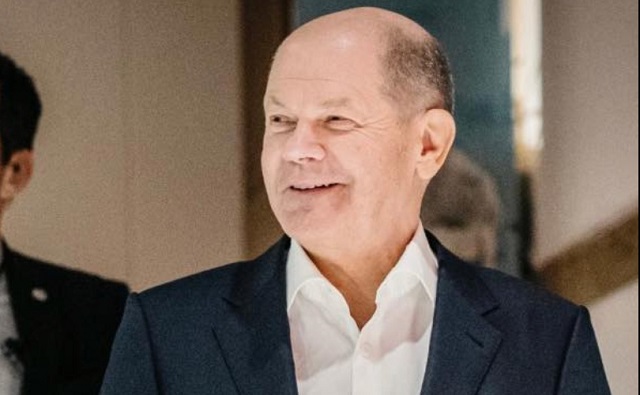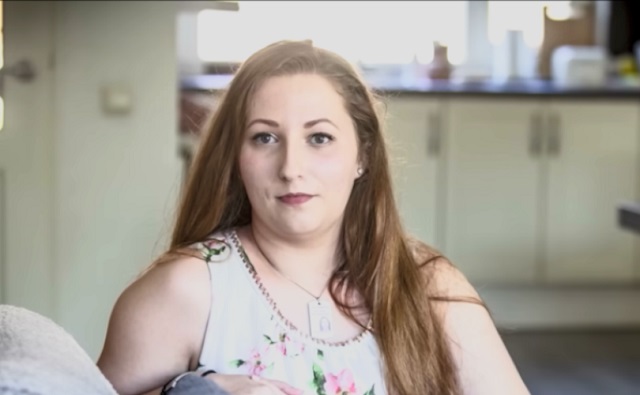Alberta
Audit of supervised consumption site in Lethbridge uncovers $1.6 million unaccounted for

From the Province of Alberta
ARCHES audit finds serious financial mismanagement
Senior executive made $342,943 in 2019
The province has released the audit of the ARCHES supervised consumption site in Lethbridge and as a result of its findings, will be ending its grant funding agreement with the organization.
The independent accounting firm Deloitte conducted a grant expenditure audit after the Alberta government learned of possible financial irregularities within the ARCHES organization.
The review substantiated allegations of asset and funding misappropriation, non-compliance with grant agreements, and inappropriate governance and organizational operations. The ARCHES organization was found to have seriously mismanaged taxpayer funds meant for the most vulnerable in our society.
“It is disturbing and extremely disappointing to me that taxpayer funds allocated to this organization in order to serve the most vulnerable in Lethbridge would be used for European conferences, expenses for retreats, entertainment and gift cards. Our government will not stand idly by while millions in taxpayer funds are missing or misappropriated.”
Jason Luan, Associate Minister of Mental Health and Addictions
Below is a summary of the audit’s findings:
$1,617,094 unaccounted for due to missing documentation for expenditures from 2017 to 2018.
$13,000 of interest off ARCHES bank accounts was used to fund parties, staff retreats, entertainment and gift cards.
A senior executive’s compensation totalled $342,943 for calendar year 2019. This includes $70,672 in overtime for fiscal year 2019-20. The grant agreement allows for a salary of $80,000.
The Everyone Comes Together (ECT) program staff salaries and benefits also exceeded the amount allocated by the grant agreement by $16,000.
The number of ARCHES employees is greater than allowed by the grant agreement. ARCHES maintained up to 126 employees. However, the exact number could not be verified.
$4,301 spent on European travel for management to attend a conference in Portugal.
Thousands of dollars in unverifiable travel expenses, including trips charged to company credit cards but not recorded in the ledger.
A senior executive’s family member was hired, earning $9,900. The auditors could not locate a resume or personnel file to verify any qualifications.
$7,557 for management retreats, including meals and mileage where documentation for spending was unclear.
The grant agreement requires the organization to maintain the funding received from Alberta Health within a separate bank account; however, the audit revealed that it was comingled with other funding sources. As a result of ARCHES comingling their accounts, the auditors could not verify thousands of dollars of expenses.
Proper personal conflict of interest declarations were not recorded when related individuals or vendors were hired or utilized.
Vendors were repeatedly secured in secrecy with a lack of transparency and accountability.
No petty cash reconciliations have been completed.
$1,129 was used to buy gift cards for board members for The Keg, iTunes, Boston Pizza, Earls, Gap, Shell, Chapters, Cineplex, Amazon, Starbuck’s, Tim Hortons, MasterCard, and Bath and Bodyworks. The expense was recorded as “Gift cards – Board Members.”
$2,100 was spent on gift cards to The Oil Changer – a business owned by a senior executive’s spouse.
$2,205 was spent on a television with no receipt documentation to support the purchase.
The auditors were unable to complete the grant expenditure review in respect to all allegations received or provide a complete financial value attributable to each allegation, due to the state of ARCHES’ records and the related outstanding documents.
Due to missing funds and unverifiable transactions, as well as allegations, which could not be investigated in the scope of this audit, government will consult with law enforcement to determine whether further investigation is warranted.
To ensure people struggling with addiction can continue to receive services, government has asked Alberta Health Services to set up a temporary mobile overdose prevention site in Lethbridge with the goal of seamlessly transitioning services. Government will also be adding three recovery coaches to the region to assist in expediting individuals into treatment.
Quick facts
ARCHES has received more than $14.4 million in taxpayer dollars over the past two years.
In June, government announced an additional $4 million over four years to expand access to the virtual opioid dependency program to allow Albertans to use telehealth technology to access treatment for opioid use disorder.
Also announced was the opioid agonist therapy gap coverage program to cover the costs of medications to treat opioid use disorder for Albertans waiting to receive coverage through a supplementary health benefit plan.
As part of the $140-million mental health and addiction commitment to create 4,000 spaces, government has announced additional treatment spaces at Poundmaker’s Lodge Treatment Centres, Sunrise Healing Lodge, Fresh Start Recovery Centre, Thorpe Recovery Centre, and the Blood Tribe Bringing the Spirit Home detox centre.
Alberta
Maxime Bernier says it’s ‘astounding’ Alberta is ‘pushing’ COVID boosters, tells Danielle Smith to stop it

From LifeSiteNews
The People’s Party of Canada leader tells the Alberta government: ‘It’s over! Get over it!’
People’s Party of Canada (PPC) leader Maxime Bernier said Alberta Premier Danielle Smith should tell provincial health bureaucrats to “back off” and stop “pushing” the mRNA COVID boosters on “anyone,” considering a recent announcement from health officials recommending yet more COVID shots.
“I find it astounding that Alberta public health bureaucrats are still pushing the mRNA boosters on anyone, and especially on children who have never been at risk, almost two years after almost all other pandemic measures have been ended,” Bernier told LifeSiteNews.
“Danielle Smith’s government should tell its bureaucrats to back off and stop stupidly feeding a needless sense of fear surrounding the virus that lingers among certain groups of society. It’s over! Get over it!”
Earlier this week, officials from Alberta Health Services (AHS), whose chief medical officer throughout the COVID crisis, Dr. Deena Hinshaw, was fired by Smith in 2022, updated its COVID booster recommendations to every “three months” starting at babies only six months old.
“Starting April 15, 2024, select groups of Albertans at high risk of severe outcomes from COVID-19 will be eligible for an additional dose,” the AHS noted on its website.
AHS health officials still assert that all “vaccines are safe, effective and save lives,” and that one can get a COVID shot at the same time as a flu vaccine.
On April 16, Bernier commented on the AHS’s new COVID jab guideline changes on X, in which he asked, “What’s going on in Alberta with their “conservative” government?
Bernier, who was a firm opponent of both the COVID shots and mandates, told LifeSiteNews that AHS’s recommendations are puzzling, given “more and more scientific evidence is emerging of dangerous side effects when injecting from these experimental substances.”
“Even though these are only recommendations, and nothing is mandated, this ‘guidance’ by government agencies influences people’s decisions,” Bernier said.
AHS claims that the booster shots “are anticipated to provide a good immune response against currently circulating strains.”
Those under 18 still need written or verbal consent from their parents to get the shot.
AHS is recommending booster jabs for seniors, healthcare workers as well as those with underlying medical conditions. They also recommend that First Nations people and “members of racialized and other equity-denied communities,” as well as pregnant women get the shots as well.
The COVID shots were heavily promoted by the federal government as well as all provincial governments in Canada, with the Alberta government under former Premier Jason Kenney being no exception.
The mRNA shots themselves have been linked to a multitude of negative and often severe side effects in children.
Danielle Smith took over from Kenney as leader of the United Conservative Party (UCP) on October 11, 2022, after winning the leadership. Kenney was ousted due to low approval ratings and for reneging on promises not to lock Alberta down as well as enacting a vaccine passport. Smith was opposed to COVID jab mandates.
Bernier: It’s ‘deplorable’ some provinces still mandate COVID shot for Heathcare workers
While Alberta does not mandate the COVID shots for healthcare workers anymore, British Columbia still does as well as some health regions in Ontario, a fact that Bernier called “deplorable.”
“I find it deplorable that nurses, doctors and other healthcare workers in B.C. and Ontario still have to be vaccinated to work in hospitals and that thousands of them have not been reintegrated,” Bernier told LifeSiteNews.
“The authoritarian covid measures adopted by all governments have been traumatic enough for millions of Canadians. All of them should be lifted.”
Last year, LifeSiteNews reported on how the details of the Canadian federal government’s COVID-19 vaccine contract with Pfizer for millions of doses of the mRNA-based experimental shots were recently disclosed after being hidden for over three years.
The contract with Pfizer shows the government agreed to accept the unknown long-term safety and efficacy of the shots. The details of the Pfizer contract do not disclose how much the government spent on the jabs.
A bill introduced by Conservative Party leader Pierre Poilievre that would have given Canadians back their “bodily autonomy” by banning future jab mandates was voted down last year after Trudeau’s Liberals and other parties rejected it.
Adverse effects from the first round of COVID shots have resulted in a growing number of Canadians filing for financial compensation over injuries from the jabs via the federal Vaccine Injury Program (VISP).
VISP has already paid well over $11 million to those injured by COVID injections.
Earlier this year, LifeSiteNews reported on how officials from Health Canada have admitted that there is “residual plasmid DNA” in the COVID shots after a Conservative MP asked the agency through an official information request if the DNA fragments were in the shots.
As for Bernier, earlier this month he called out Poilievre for dodging a question regarding Canada’s participation in the United Nations’ pro-abortion Paris Climate Agreement.
Throughout most of the COVID crisis, Canadians from coast to coast were faced with COVID mandates, including jab dictates, put in place by both the provincial and federal governments.
After much pushback, thanks to the Freedom Convoy, most provincial mandates were eliminated by the summer of 2022.
There are currently multiple ongoing class-action lawsuits filed by Canadians adversely affected by COVID mandates.
Alberta
Canada’s advantage as the world’s demand for plastic continues to grow

From the Canadian Energy Centre
By Will Gibson
‘The demand for plastics reflects how essential they are in our lives’
From the clothes on your back to the containers for household products to the pipes and insulation in your home, plastics are interwoven into the fabric of day-to-day life for most Canadians.
And that reliance is projected to grow both in Canada and around the world in the next three decades
The Global Plastics Outlook, published by the Paris-based Organization for Economic Co-operation and Development (OECD), forecasts the use of plastics globally will nearly triple by 2060, driven by economic and population growth.
The use of plastics is projected to double in OECD countries like Canada, the United States and European nations, but the largest increases will take place in Asia and Africa.
“The demand for plastics reflects how essential they are in our lives, whether it is packaging, textiles, building materials or medical equipment,” says Christa Seaman, vice-president, plastics with the Chemical Industry Association of Canada (CIAC), which represents Canada’s plastics producers.
She says as countries look to meet climate and sustainability goals, demand for plastic will grow.
“Plastics in the market today demonstrate their value to our society. Plastics are used to make critical components for solar panels and wind turbines. But they also can play a role in reducing weight in transportation or in ensuring goods that are transported have less weight in their packaging or in their products.”
Canada produces about $35 billion worth of plastic resin and plastic products per year, or over five per cent of Canadian manufacturing sales, according to a 2019 report published by the federal government.
Seaman says Canadian plastic producers have competitive advantages that position them to grow as demand rises at home and abroad. In Alberta, a key opportunity is the abundant supply of natural gas used to make plastic resin.
“As industry and consumer expectations shift for production to reduce emissions, Canada, and particularly Alberta, are extremely well placed to meet increased demand thanks to its supply of low-carbon feedstock. Going forward, production with less emissions is going to be important for companies,” Seaman says.
“You can see that with Dow Chemical’s decision to spend $8.8 billion on a net zero facility in Alberta.”
While modern life would not be possible without plastics, the CIAC says there needs to be better post-use management of plastic products including advanced recycling, or a so-called “circular economy” where plastics are seen as a resource or feedstock for new products, not a waste.
Some companies have already started making significant investments to generate recyclable plastics.
For example, Inter Pipeline Ltd.’s $4.3 billion Heartland Petrochemical Complex near Edmonton started operating in 2023. It produces a recyclable plastic called polypropylene from propane, with 65 per cent lower emissions than the global average thanks to the facility’s integrated design.
Achieving a circular economy – where 90 per cent of post-consumer plastic waste is diverted or recycled – would benefit Canada’s economy, according to the CIAC.
A Deloitte study, commissioned by Environment & Climate Change Canada, estimated diverting or reusing 90 per cent of post-consumer plastic waste by 2030 will save $500 million annually while creating 42,000 direct and indirect jobs. It would also cut Canada’s annual CO2 emissions by 1.8 megatonnes.
Right now, about 85 per cent of plastics end up in Canada’s landfills. To reach the 90 per cent diversion rate, Seaman says Canada must improve its infrastructure to collect and process the plastic waste currently being landfilled.
But she also says the industry rather than municipalities need to take responsibility for recycling plastic waste.
“This concept is referred to as extended producer responsibility. Municipalities have the responsibility for managing recycling within a waste management system. Given the competing costs and priorities, they don’t have the incentive to invest into recycling infrastructure when landfill space was the most cost-effective solution for them,” she says.
“Putting that responsibility on the producers who put the products on the market makes the most sense…The industry is adapting, and we hope government policy will recognize this opportunity for Canada to meet our climate goals while growing our economy.”
-

 Opinion1 day ago
Opinion1 day agoTransgender ideology has enabled people to ‘identify’ as amputees
-

 International22 hours ago
International22 hours agoGerman parliament passes law allowing minors to change their legal gender once a year
-

 International1 day ago
International1 day agoTelegram founder tells Tucker Carlson that US intel agents tried to spy on user messages
-

 Business1 day ago
Business1 day agoCanada’s economy has stagnated despite Ottawa’s spin
-

 Business1 day ago
Business1 day agoNew capital gains hike won’t work as claimed but will harm the economy
-

 Alberta2 days ago
Alberta2 days agoDanielle Smith warns arsonists who start wildfires in Alberta that they will be held accountable
-

 Economy1 day ago
Economy1 day agoExtreme Weather and Climate Change
-

 Fraser Institute1 day ago
Fraser Institute1 day agoPowerful players count on corruption of ideal carbon tax







